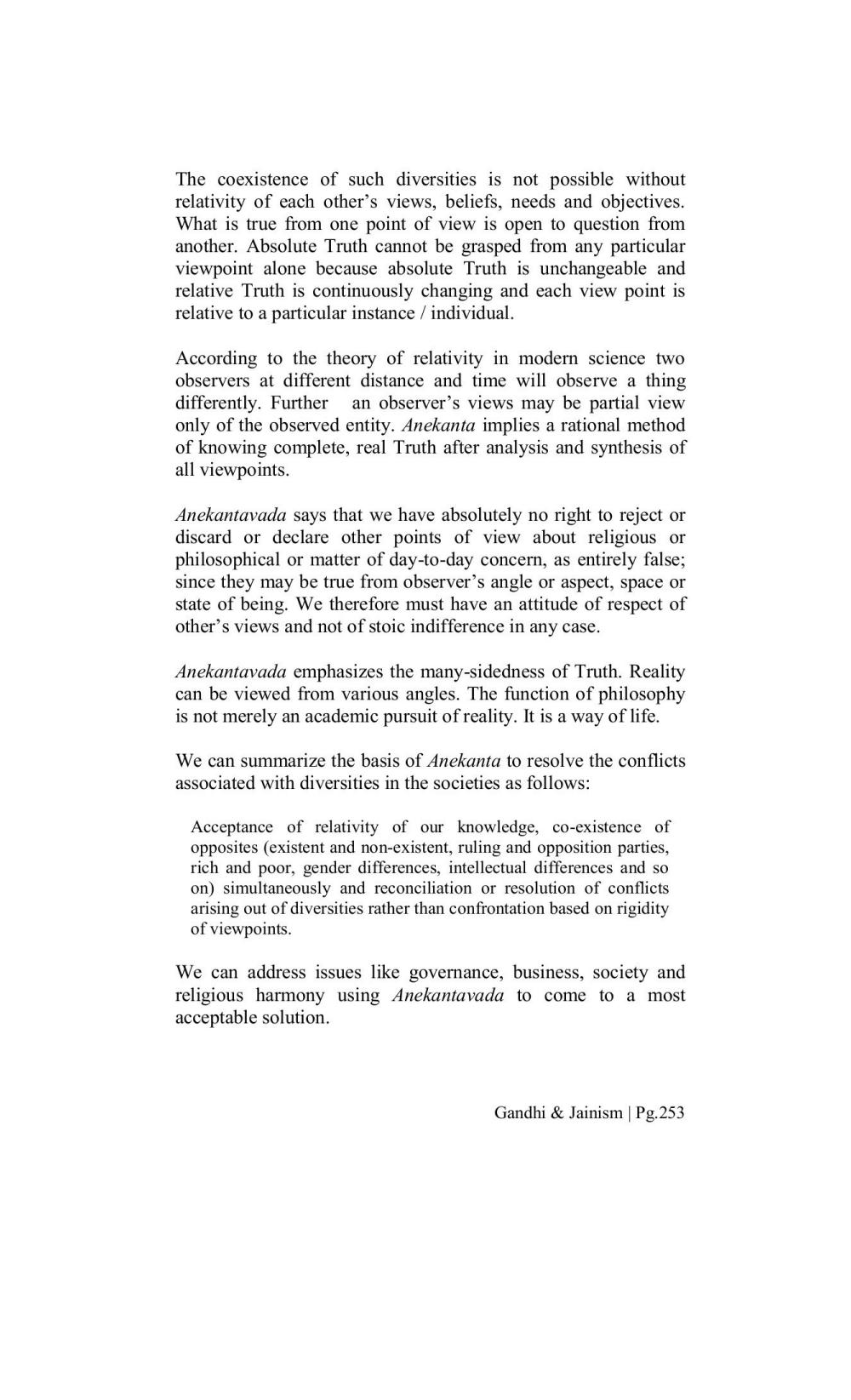________________
The coexistence of such diversities is not possible without relativity of each other's views, beliefs, needs and objectives. What is true from one point of view is open to question from another. Absolute Truth cannot be grasped from any particular viewpoint alone because absolute Truth is unchangeable and relative Truth is continuously changing and each view point is relative to a particular instance / individual.
According to the theory of relativity in modern science two observers at different distance and time will observe a thing differently. Further an observer's views may be partial view only of the observed entity. Anekanta implies a rational method of knowing complete, real Truth after analysis and synthesis of all viewpoints.
Anekantavada says that we have absolutely no right to reject or discard or declare other points of view about religious or philosophical or matter of day-to-day concern, as entirely false; since they may be true from observer's angle or aspect, space or state of being. We therefore must have an attitude of respect of other's views and not of stoic indifference in any case.
Anekantavada emphasizes the many-sidedness of Truth. Reality can be viewed from various angles. The function of philosophy is not merely an academic pursuit of reality. It is a way of life.
We can summarize the basis of Anekanta to resolve the conflicts associated with diversities in the societies as follows:
Acceptance of relativity of our knowledge, co-existence of opposites (existent and non-existent, ruling and opposition parties, rich and poor, gender differences, intellectual differences and so on) simultaneously and reconciliation or resolution of conflicts arising out of diversities rather than confrontation based on rigidity of viewpoints.
We can address issues like governance, business, society and religious harmony using Anekantavada to come to a most acceptable solution.
Gandhi & Jainism
Pg.253




